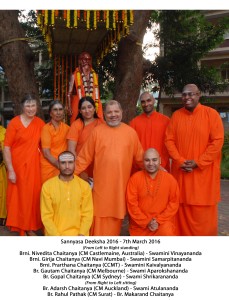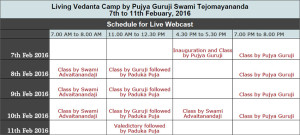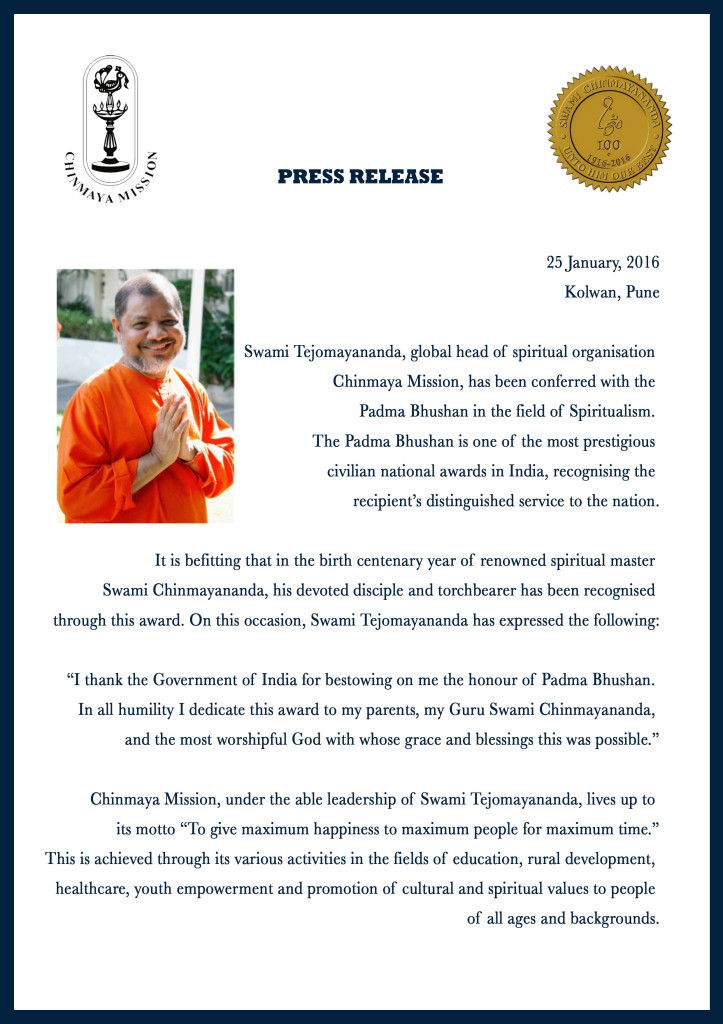We have often seen how a small and weak nation attacked by a strong and apparently unconquerable enemy, seeks the aid of a ‘superpower’. Arjuna tells Sri Krishna that he has understood the might of the foe, desire – a seemingly invincible opponent. He now requests the Lord to identify a ‘superpower’ whose help he could seek.
The Mighty Enemy
Bhagwan’s response is beautiful. He draws Arjuna’s attention to the scriptures which declare: “The senses are superior to the body; greater, higher and subtler than them is the mind; superior to the mind is the buddhi, intellect; But the One who is even higher and transcends the buddhi is the Atman.” The Lord adds, “O Arjuna, mahabaho (mighty-armed) by knowing Him who is superior to the intellect and gaining mastery over your mind, kill this enemy (satrum) in the form of desire who is indeed very difficult to catch.”
Shatru is one who always persecutes and troubles you. This mighty enemy, desire appears in so many varied forms that sometimes it is difficult to even see it as your enemy; you mistake it to be a friend!
It is very interesting to note that Bhagwan has cleverly addressed Arjuna as ‘mahabaho’. Having accepted that he is powerful, Arjuna cannot, now, refuse to fight the enemy!
Conquering Desire
Let us understand the meaning of Sri Krishna’s words. Sense objects – money, power or objects – have a great sway over our minds. We are easily attracted and tempted by them and unwilling to simply give them up.
But suppose a gunman comes and threatens you, “Give me your money or I will kill you.”
You will respond “Take all of my things, but leave me please!”
What does this imply? You love your body and value your life; you identify with it and for its safety, you are ready to sacrifice money and other objects that you consider valuable.
Many parents face all kinds of hardships and privations to ensure a good education for their children. Their noble feelings (the mind) enable them to ignore the demands of their body and renounce comforts. So whether noble feelings are for the family, the community or some other higher cause, they help us undergo physical hardship and give up what we are, otherwise, not ready to renounce. This proves, as the Lord states, that the mind is superior to the senses; it can overcome their powerful demands.
Superior to the mind is the buddhi, the intellect. The buddhi has great ideals – freedom of the nation, prosperity of the country, the well-being of the people and so on. Inspired by these higher ideals, a person is able to forgo comforts and luxury, his family, individual problems and even sacrifice his life. Lokmanya Tilak said “I do not have tears to shed for my personal problems when the whole nation is suffering.”
Therefore, Bhagwan counsels us that if we identify ourselves to a higher and nobler cause, it becomes possible to give up the identification and attachment to the lower.
Indentify with the Higher
The highest is the Atman. Even kings and emperors have renounced their kingdoms and the trappings of power for the deep urge for spiritual realization. They rise above all those desires and nothing of this world or the other world has any attraction for them.
The same thing is expressed beautifully in the language of bhakti (devotion) – one should divinise desires. As long as desire is only for material pleasures and comforts, it will become binding. But when the desire is for God and realization, it liberates you.
In Tulsi Ramayana, Sugriva requests Sri Rama, “I want to overcome desire, anger and greed. I am trying, but without Your grace it will not happen.”
Bhakti shastras advise us to divinise our desires and invoke God’s grace. The path of knowledge (jnana), tells us to identify with the higher and higher, so that desire for the lower disappears.
This concludes the topic which began with Arjuna’s asking about the power that makes people commit sin.
The Bhagavad Gita exhaustively deals with issues which are relevant to all of us and proves that so long as we are alive, act we must. The only exception is the man of Realisation who revels in the Self; for him there is nothing more left to do. At the same time, though he is free from this compulsion, he still continues to work. The Man of Realisation alone knows what true selflessness is; he alone is able to identify with all. His acts are selfless.
In this chapter, Sri Krishna has pointed out the type of actions that are to be performed and the attitude with which they should be carried out. He drew our attention to the wheel of action and directed us to contribute to its smooth functioning by acting in the yajna spirit. The essentials of leadership are also elaborated. Finally, Sri Krishna dealt with the factor which propels man to commit sin – desire. He concluded by revealing how to gain victory over this mighty enemy.
Let us invoke the grace and blessings of Bhagavan and Pujya Gurudev Swami Chinmayananda for our spiritual unfoldment and for empowering us to serve the society around us to the best of our ability and knowledge.
Shree Krishna Sharnam Mamah.
The Author is the Head of Chinmaya Mission Worldwide.




